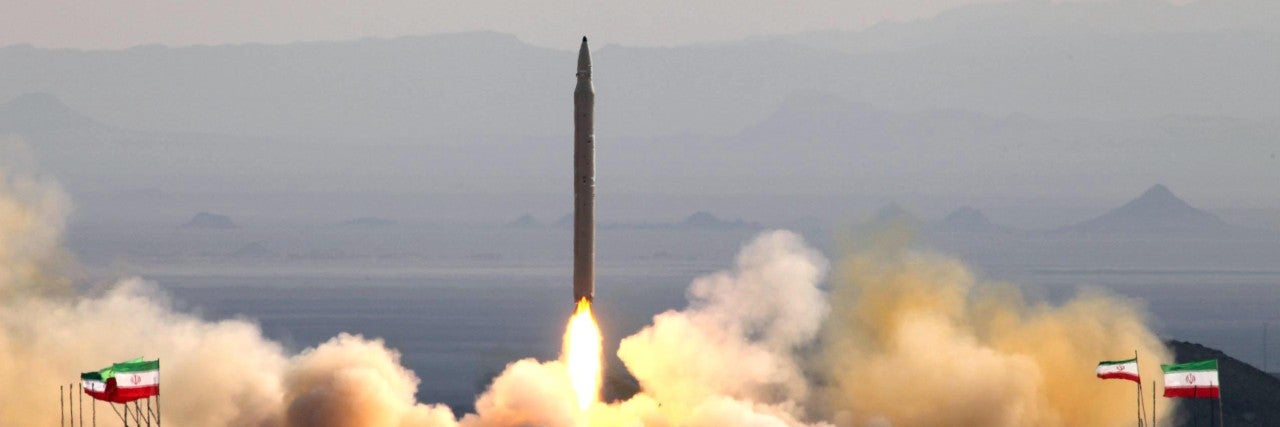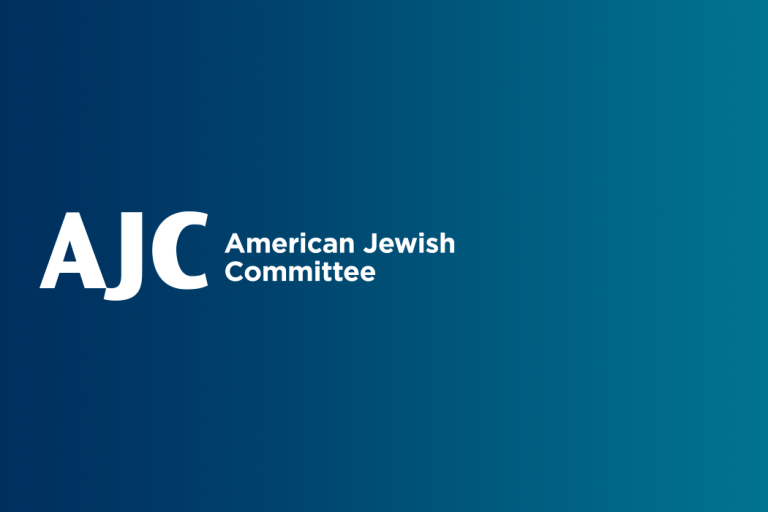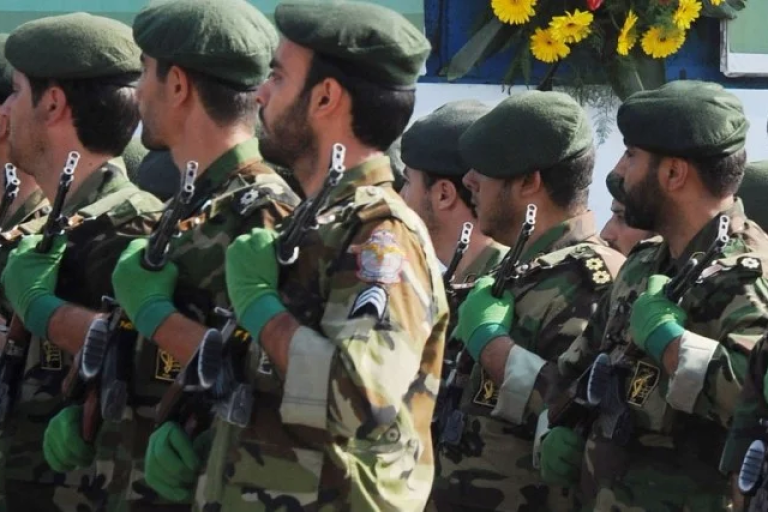February 17, 2022
As all eyes turn to Vienna for the eighth, and what was intended to be the final, round of negotiations between Western world powers, China, Russia, and Iran to restore the 2015 Joint Comprehensive Plan of Action (JCPOA), the Iranian regime has spent the last ten months watching America’s every move in Kabul, Kyiv, and Washington.
This week marks six months since the U.S. withdrew troops from Afghanistan and the Afghan capital of Kabul was overtaken by the Taliban. And last week, President Biden warned Russia of severe consequences if it invaded Ukraine. Meanwhile, in Washington, D.C. American politicians continue to bicker.
“This is very much a test of the United States – a test of our will, a test of our resolve, a test of our capabilities, a test of our leadership in the Transatlantic context and the NATO context,” AJC CEO David Harris said, referring to the situation in Ukraine, which he believes is the latest opportunity for the U.S. to affirm its clout. “Not only is President Putin following this closely, but Iranian leaders are also following this every bit as closely. If Iranian leadership conclude that the United States is in their mind weak or trembling at the knees or is fearful of potential conflict or war, no one should kid themselves. The Iranians will act accordingly based on those conclusions.”
According to Harris, here are four things the United States can do to try to ensure the six world powers walk away with a better deal that demonstrates a global front against Iran’s aggression.
1. The Biden Administration should make every effort to demonstrate a bipartisan front against the threats posed by Iran.
Republicans in Washington have warned that any agreement related to Iran’s nuclear program which is not ratified by the Senate as a treaty likely would not survive past the U.S. presidential election in 2024. Biden should heed that warning, Harris said.
“The Administration needs to make every effort try to generate bipartisan support,” he said. “To do so, they’re going to need to understand and seek to address at least some of the key concerns of Republicans, whether individual Republicans, or the group as a whole. If it’s just going to be a Democratic driven endorsement it will arouse concern in Tehran and elsewhere that it will be valid only until the Republicans take over again.”
Indeed, not a single Republican voiced support for what the Obama Administration considered its crowning foreign policy achievement. President Trump withdrew the U.S. from the international deal in 2018 and reimposed sanctions that were originally lifted under the terms of the agreement, while China, France, Germany, Russia, the United Kingdom, and the European Union maintained their commitment.
2. The Biden Administration should make every effort to take into account key concerns of our allies in the region.
For the first time since negotiations resumed last April, Israeli diplomats have traveled to Vienna to advise negotiators from the sidelines. That’s already an improvement over the negotiations of 2015, which essentially ignored the concerns of Israel and moderate Sunni Arab countries in the region.
“That process has not been repeated, rather there is conversation and consultation, and we welcome it,” Harris said.
“Iran’s regional behavior in the last six years has only gotten worse, not better,” he said, noting its supply of missiles to Houthi rebels in Yemen, Hamas terrorists in Gaza, Hezbollah terrorists in Lebanon, and Shiite militias in Iraq.
“It’s clearer and clearer Iran is a malign actor, and it cannot be trusted,” Harris said. “It’s pushing everything to the brink.
In the past month, missiles have been fired over Abu Dhabi by Iranian-backed Houthi rebels in Yemen, in one case forcing U.S. personnel at the al-Dhafra air base to take cover and employ Patriot air defenses. These attacks have prompted the Biden Administration to consider re-designating the Houthis as terrorists, after reversing a decision taken in the last days of the Trump Administration to do so.
Only close coordination among the United States and our strategic partners in Europe, the Gulf, and the Levant, can ensure a global front against Iran’s nefarious and destabilizing activities, says Harris.
3. The Biden Administration should never lose sight of the true nature of the Iranian regime.
As Iran dispatches diplomats to Vienna to negotiate in good faith, its messaging on social media and the regime’s financial investments suggest otherwise.
“Iranian calls for Israel’s annihilation persist,” Harris said.
In May 2021, a month after the nuclear talks opened, Iran’s Supreme Leader Ali Hosseini Khamenei tweeted:
In January, Minister of Foreign Affairs of the Islamic Republic Hossein Amir-Abdollahian tweeted in response to an interview with Israel’s Foreign Minister Yair Lapid:
اظهارات آشفته وزير خارجه رژيم جعلی اسراییل در قبال ملت بزرگ ایران، مصداق این ضرب المثل معروف ایرانیست که« شتر در خواب بیند پنبه دانه، گهی لپ لپ خورد گه دانه دانه». با اقتدار و عقلانیت از حقوق ، منافع وپیشرفت ملت دفاع می کنیم. صهیونیسم جایی در آینده جهان ندارد.
— H.Amirabdollahian امیرعبداللهیان (@Amirabdolahian) January 3, 2022
Meanwhile, according to an analysis by AJC and the International Counter-Terrorism Institute, Iran pours as much as $700 million per year into its terrorist proxies, making it the leading state sponsor of terrorism.
The U.S. State Department also considers Iran’s state militia, the Islamic Revolutionary Guard Corps (IRGC), a foreign terrorist organization (FTO), the first foreign state entity to earn that distinction. Formed during the Islamic Revolution in 1979, its special operations unit, the Quds Force, has helped establish proxy terrorist groups like Hezbollah in Iraq, Syria, and Lebanon.
“We collectively must never forget who we are negotiating with,” Harris said. “Iran is a revolutionary regime, ideologically driven, implacably hostile to the U.S., to its Sunni Arab neighbors, and the state of Israel.”
4. U.S. Secretary of State Antony J. Blinken got it right in March 2021.
Last March, U.S. Secretary of State Antony J. Blinken said world powers sought “to build a longer and stronger agreement, but also to engage on some of the other issues where Iran’s actions and conduct are particularly problematic,” including the destabilization of countries in the region and its ballistic missile program.
So, what is AJC’s stance on the nuclear talks?
“A starting point is Tony Blinken’s own words,” Harris said.
A longer renegotiated pact must extend the sunset clauses, the provisions that eventually lift restrictions on Iran’s production, stockpile, and use of enriched uranium, beyond where they are, Harris said.
A stronger pact must be comprehensive and enforceable. It must include unhindered international monitoring of nuclear weapons capability, restrictions on ballistic missile development and penalties for destabilizing regional behavior, support for terror proxies, and human rights abuses. Leaving any of these elements out of an enforceable agreement creates a “huge gaping hole,” Harris said.
Sanctions are key. In the years leading up to the JCPOA, U.S. and global economic sanctions choked Iran’s economy by restricting international transactions and cutting crude oil exports by more than 50%. Iran had no choice but to negotiate a deal impeding its development of nuclear weapons.
As the Biden Administration weighs which sanctions to leverage to return Iran to full compliance, it must maintain sufficient tools not only to respond to the regime’s terror support and gross human rights violations but to provide powerful leverage for the “longer and stronger” deal the Administration has pledged to pursue.


